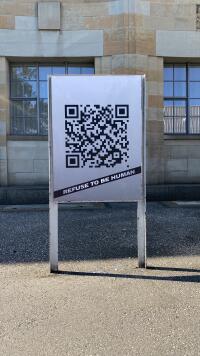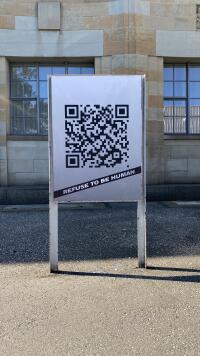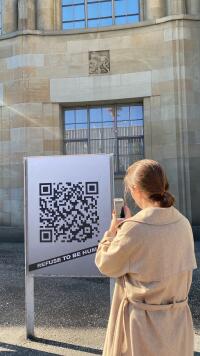Refuse to be Human

The Baidu edition
Have you ever wanted to surf the web as a bot? Ever wondered what a bot gets to see online that you don't? In their latest online work, !Mediengruppe Bitnik allows you to become a Baidu bot to find out.
The number one search engine in China, Baidu uses web crawlers that extensively scrape the web for content for their search engines. Only what the bots see is indexed, for discovery later by users searching on Baidu. Refuse to be Human allows you to install a web extension that changes your browser’s user agent to match that of the Baidu bot, giving you access to what is referred to as the ‘grey web’ – a layer of content only visible to bots. This simple web extension allows you to experience the web in a novel way: You will see fewer ads and less taylored content and you will be able to access websites and archives usually paywalled.
Become a search bot to gain access to the grey net.
!Mediengruppe Bitnik (read – the not Mediengruppe Bitnik) are contemporary artists working on, and with, the Internet. Their practice expands from the digital to physical space, often intentionally applying loss of control to challenge established structures and mechanisms.
!Mediengruppe Bitnik’s works formulate fundamental questions concerning contemporary issues. In the past they have been known to subvert surveillance cameras, bug an opera house and broadcast its performances outside, send a parcel containing a camera to Julian Assange at the Ecuadorian embassy in London, and physically glitch a building. Their works have been shown internationally, most recently in exhibitions at CAC Shanghai, LOAF Kyoto, Annka Kultys Gallery London, House of Electronic Arts Basel, Aksioma Ljubljana, Kunsthaus Zurich, FACT Liverpool, Onassis Cultural Center Athens, Public Access Gallery Chicago, Nam June Paik Art Center South Korea, Shanghai Minsheng 21st Century Museum, The Pushkin Museum of Fine Arts Moscow, Beijing Contemporary Art Biennial and the Tehran Roaming Biennial.
The artist group
Previously released editions of Refuse to be Human
The Baidu edition of Refuse to be Human was commissioned by Digilab@Kunsthaus Zurich. The source code is free software and published under the GNU GPLv3.
RYBN




